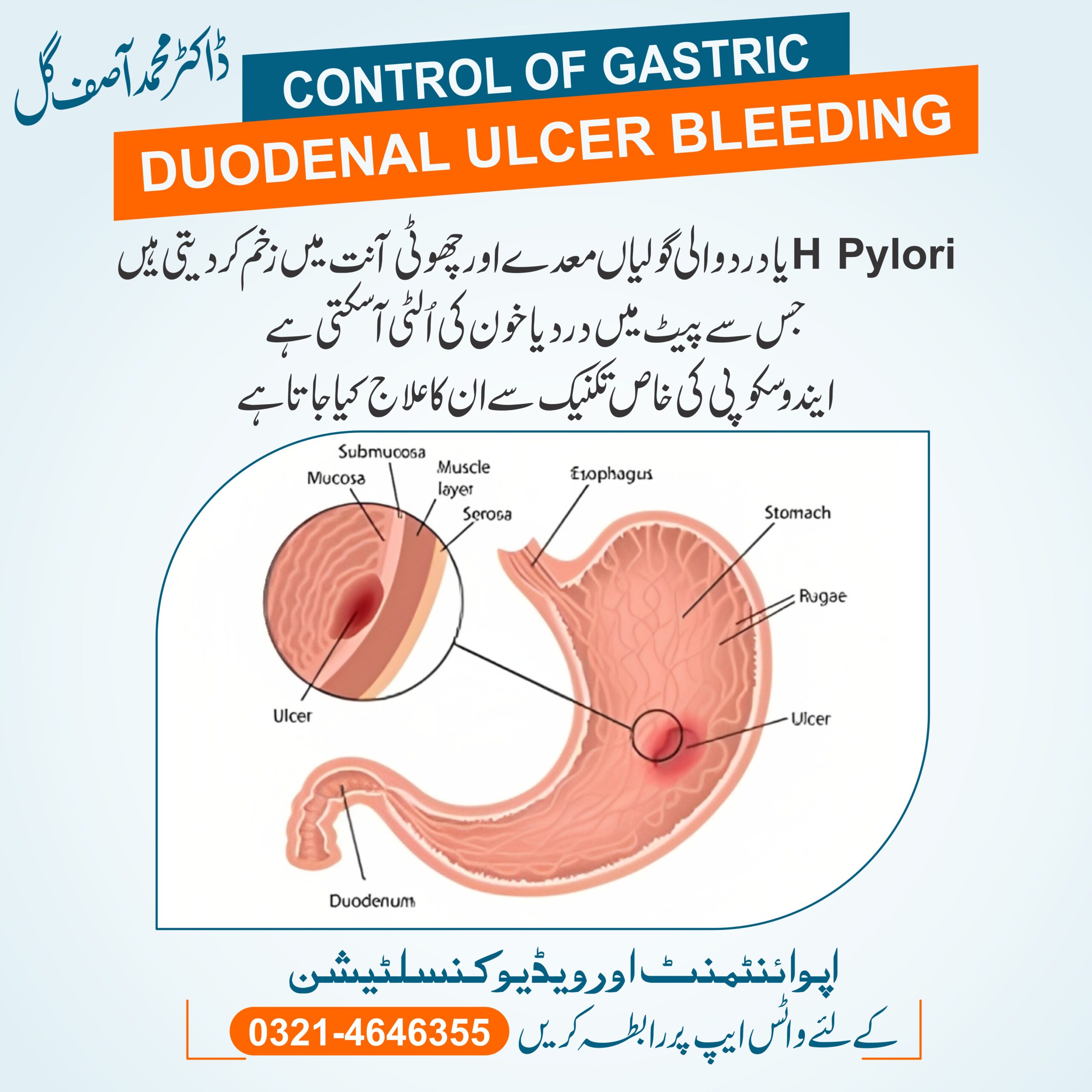Control of Gastric Duodenal Ulcer Bleeding
Control of Gastric Duodenal Ulcer Bleeding: Effective Treatment and Physician Services
Gastric duodenal ulcer bleeding is a serious condition that requires immediate medical attention and specialized treatment. Ulcers, which are open sores on the lining of the stomach or the upper part of the small intestine (duodenum), can lead to complications and life-threatening situations when they bleed. In this article, we will discuss the control and treatment options for bleeding duodenal ulcers, as well as the essential physician services available to patients in need.
When a patient presents with symptoms of a bleeding peptic ulcer, such as abdominal pain, vomiting blood, or passing dark, tarry stools, prompt medical intervention is crucial. Firstly, the primary objective is to halt the bleeding and stabilize the patient’s condition.
One effective treatment option for bleeding ulcers is endoscopic therapy. To begin with, this minimally invasive procedure involves utilizing an endoscope, a flexible tube equipped with a camera, to identify the bleeding source and apply targeted interventions. Additionally, through endoscopy, physicians can visualize the ulcer and perform various techniques to stop the bleeding.
Moreover, in instances where endoscopic therapy is not feasible or fails to control the bleeding, surgical intervention may be necessary. Consequently, surgery aims to repair the ulcer and address any underlying factors that may have contributed to its development. Moreover, surgeons can perform procedures such as partial gastrectomy or vagotomy to remove the ulcer or reduce acid production in the stomach, respectively.
In addition to medical procedures, patients with gastric duodenal ulcer bleeding require comprehensive care from a team of healthcare professionals. Firstly, gastroenterologists play a vital role in diagnosing and managing ulcers. Furthermore, they utilize their expertise in endoscopy and provide specialized ulcer treatments. Additionally, these specialists collaborate closely with surgeons, radiologists, and other physicians to ensure the best possible outcomes for patients.
Following the initial treatment, patients should engage in regular follow-up visits with their physicians to monitor their progress and make any necessary adjustments to their treatment plan. Firstly, gastroenterologists and primary care physicians can provide ongoing care, evaluate treatment effectiveness, and recommend lifestyle modifications to minimize the risk of ulcer recurrence. They may also prescribe medications to promote ulcer healing, alleviate symptoms, and reduce stomach acid production.
In conclusion, the control of gastric duodenal ulcer bleeding necessitates swift action and tailored treatment. In conclusion, endoscopic therapy and surgical intervention are effective approaches for stopping the bleeding and addressing underlying causes. By collaborating with a multidisciplinary healthcare team, including gastroenterologists, surgeons, and other specialists, physicians can ensure comprehensive care for patients with bleeding ulcers. Regular follow-up visits with physicians allow for ongoing monitoring and adjustment of treatment plans. Through these crucial physician services, healthcare professionals can effectively manage and control gastric duodenal ulcer bleeding, ultimately enhancing the overall health and well-being of their patients

